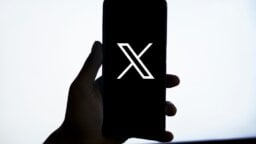A court in Tennessee is allowing a group of music publishers to proceed with certain elements of their multi-million dollar copyright infringement lawsuit filed against Elon Musk’s social media platform, X (or Twitter).
The lawsuit was filed in June last year by 17 companies represented by the National Music Publishers Association, including prominent independent companies, as well as major publishers, Sony Music Publishing, Universal Music Publishing Group and Warner Chappell Music.
Their complaint seeks over $250 million in damages for “hundreds of thousands” of alleged infringements of approximately 1,700 works.
Two months on from the launch of that litigation, X filed a motion asking the court to dismiss the complaint.
In a decision published on Tuesday (March 5), Federal Judge Aleta A. Trauger granted X’s motion to dismiss in part, but also denied it in part.
The publishers’ original complaint included three counts against Twitter/X, suing the company for direct, contributory, and vicarious infringement, respectively.
The court dismissed the direct infringement claim, referring to case law to argue that X/Twitter wasn’t an active participant in the alleged infringement by its users, but rather provided the platform for it.
According to Trauger, “X/Twitter was more like a telephone company — providing the mechanism for communication between independent communicators—than like a cable company that actively selects material to make available”.
Trauger also dismissed the publishers’ vicarious infringement claim, noting that “as with the issue of direct infringement, the plaintiffs are trying to force X Corp’s actions into a category not intended to account for the actual character of the relationships at issue, when there is a tool — the doctrine of contributory infringement — uniquely suited to the job”.
The court is also dismissing the contributory infringement claim, “insofar as it seeks to assert a theory of comprehensive general liability for infringement across the X/Twitter platform”.
However, the court said it will permit the music publishers to proceed, “with regard to the three potentially unlawful practices” alleged as part of the contributory infringement claim and “any instances of infringement attributable to those practices”.
The three elements of the publishers’ contributory infringement claim that the court is allowing them to proceed with include “allegations that X/Twitter (1) allowed users to pay for more forgiving treatment under its anti-infringement policies through its “verified user” program, (2) was unreasonably dilatory in its response to notices of infringement, and (3) failed to take appropriate steps regarding the accounts of severe repeat infringers”.
Trauger noted on Tuesday that the allegation that X enforces “less stringently” its copyright policies “against individuals willing to pay for its ‘verified’ service is “particularly striking”.
Added Trauger: “If X Corp. truly did allow some users to effectively purchase the right to be able to infringe with less severe consequences, then that was plausibly an instance of “promoting” X/Twitter’s ‘use to infringe copyright, as shown by . . . affirmative steps taken to foster infringement’, which Grokster acknowledged as a sufficient basis for liability. Grokster, 545 U.S. at 936–37.”
Trauger continued: “Similarly, if X Corp. engaged in egregious delays in responding to valid takedown notices, or outright ignored some notices that were both facially and actually valid, that could support liability.”
A spokesperson for the National Music Publishers’ Association told MBW in a statement that the NMPA is “pleased that the court recognized Twitter’s potential liability and that the publishers’ copyright infringement claim on all the asserted works in the case will be moving forward”.
“The spread of rampant music piracy on the platform is obvious and unacceptable, and we look forward to securing just compensation for the songwriters and music publishers whose work is being stolen.”
NMPA spokesperson
They added: “The opinion makes clear that Twitter can be liable for failing to respond reasonably to the publishers’ takedown notices. Twitter must act reasonably with respect to known infringements and known repeat infringers.
“The spread of rampant music piracy on the platform is obvious and unacceptable, and we look forward to securing just compensation for the songwriters and music publishers whose work is being stolen.”
Unlike rivals like Facebook, Instagram and TikTok, X does not have licensing deals in place with major music companies.
The platform’s lack of agreements with music rightsholders has long been a matter of contention, and the platform is often criticized in the music industry for turning a blind eye to alleged infringement.
This all came to a head in June last year when the platform was hit with a multi-million-dollar lawsuit from 17 music publishers.
The full list of companies suing Twitter, all named as plaintiffs, include Concord, Universal Music Publishing Group, peermusic, ABKCO Music, Anthem Entertainment, Big Machine Music, BMG Rights Management, Hipgnosis Songs Group, Kobalt Music Publishing America, Mayimba Music, Reservoir Media Management, Sony Music Publishing, Spirit Music Group, The Royalty Network, Ultra Music Publishing, Warner Chappell Music, and Wixen Music Publishing.Music Business Worldwide





